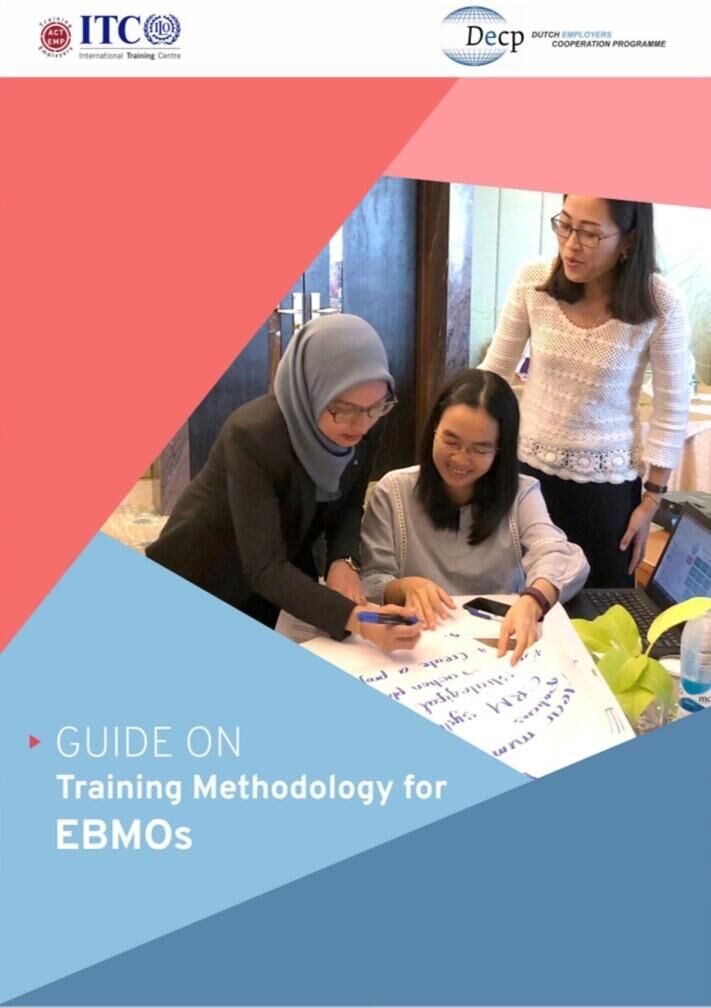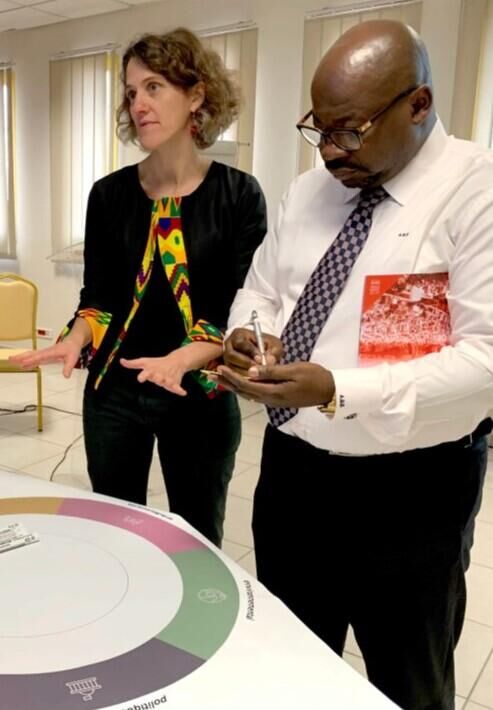

DECP and ITCILO set the standard for adult learning
For many years, DECP is cooperating with ITCILO, the International Training Centre of the ILO, when it comes to training activities. A lot of knowledge and insights have been gathered with regard to adult learning. Because training courses form an important part of the services provided by employers’ organisations, DECP and ITCILO experts have decided to jointly write a guide, intended for EBMOs, in which all aspects of adult learning are described in detail. ‘Guide on Training Methodology for EBMOs’ was recently published.
In many countries, EBMOs at national, branch or regional level provide training services for their company members, or have the ambition to set up or expand such training services. Training services are a way for EBMOs to be visible, provide tangible value for money for members and attract new members. Training services can contribute in a substantial manner to the revenue building efforts of organisations.
However, running a sustainable and high quality level training service is not evident, especially in competitive markets. It requires professionalism, both managerially and technically. Organisations’ staff entrusted with the management of training services need to possess or acquire a number of managerial skills and competencies in the field of marketing, pricing, and organisation, to ensure that high quality training products are delivered in a sustainable way. Running a sustainable and high quality level training service also requires good insight and skills in the business of adult learning, understanding the roles of trainers, mastering workshop and eLearning design. Keeping abreast of changing needs of members requires a capacity to innovate, transform existing training and integrate new adult learning methodologies in order to achieve more quality, more engagement, better learning impact as well as high levels of delivery.
The present publication aims to guide in a very practical way EBMOs which are planning to set up or which are running a training service. It focusses on the fundamental concepts of adult learning and the role of the trainer, proposes a step-by-step methodology on how to design a training and finally presents practical tools and tips to use innovative and engaging adult learning methodologies in training activities. It covers all three types of training: face-to-face workshops, blended learning and eLearning. While most EBMOs organise principally face-to-face training workshops, there is a growing trend towards digitalizing training services and using blended approaches. The Guide suggests how to best design and deliver training courses based on practical examples of training activities delivered by selected EBMOs.
Download the Guide here: https://www.itcilo.org/resources/guide-training-methodology-ebmos

Ms. Jeanne Schmitt (ITCILO see picture) and Dr. Arnout De Koster (DECP) conceptualized, provided substantive inputs and edited the Guide.